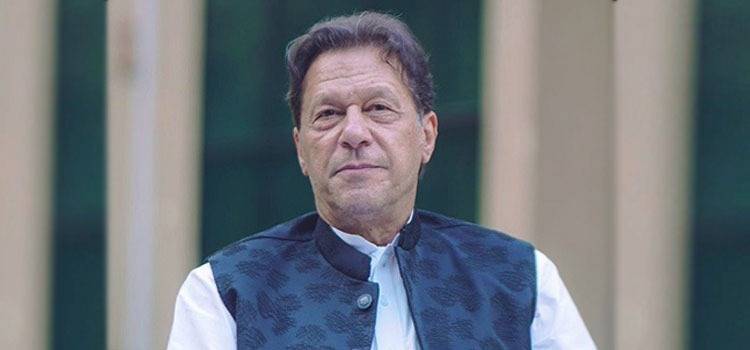
Islamabad High Court on Tuesday suspended the non-bailable arrest warrants for PTI chief Imran Khan in the Toshakhana case, till March 13.
Issuing the verdict, the court directed the former premier to appear before the district and sessions court on March 13.
The IHC also warned the accused that he would be declared an absconder if he didn't appear in the next hearing of the case.
Imran thrice skipped the hearings related to his indictment in the case, which is related to his concealing of details of the gifts, retained from the Toshakhana, while declaring his assets.
A day earlier, his petition for suspension of the non-bailable arrest warrants was denied by the Islamabad district and sessions court.
On Sunday, Islamabad police arrived in Lahore to arrest the accused after receiving court's orders in this regard.
Late last month, the National Accountability Bureau issued a “call up notice” to the former prime minister, saying he must appear in the inquiry proceedings on March 9.
The notice from NAB, dated Feb 17, stated that Imran must appear before the accountability watchdog to “join the inquiry proceedings” which will ascertain whether any law was broken.
The bureau listed seven items – five Rolex watches, one iPhone and a Graff gift set – as the gifts that Imran received from foreign dignitaries in his capacity of prime minister, but later treated as his own personal property.
Last year, the PTI chief exclaimed before the media that these gifts belonged to him, and he could do whatever he wanted with them.
High-level state visits are couched in diplomatic niceties that have evolved over centuries. Meetings between dignitaries and senior officials usually include an exchange of gifts, as a basic courtesy and an expression of goodwill. However, in modern democracies, such gifts are indeed exchanged between state officials, but are property of the state and belong to the people in whose name those state gifts are received and accepted.
Issuing the verdict, the court directed the former premier to appear before the district and sessions court on March 13.
The IHC also warned the accused that he would be declared an absconder if he didn't appear in the next hearing of the case.
Imran thrice skipped the hearings related to his indictment in the case, which is related to his concealing of details of the gifts, retained from the Toshakhana, while declaring his assets.
A day earlier, his petition for suspension of the non-bailable arrest warrants was denied by the Islamabad district and sessions court.
On Sunday, Islamabad police arrived in Lahore to arrest the accused after receiving court's orders in this regard.
High-level state visits are couched in diplomatic niceties that have evolved over centuries. Meetings between dignitaries and senior officials usually include an exchange of gifts, as a basic courtesy and an expression of goodwill. However, in modern democracies, such gifts are indeed exchanged between state officials, but are property of the state and belong to the people in whose name those state gifts are received and accepted.
Late last month, the National Accountability Bureau issued a “call up notice” to the former prime minister, saying he must appear in the inquiry proceedings on March 9.
The notice from NAB, dated Feb 17, stated that Imran must appear before the accountability watchdog to “join the inquiry proceedings” which will ascertain whether any law was broken.
The bureau listed seven items – five Rolex watches, one iPhone and a Graff gift set – as the gifts that Imran received from foreign dignitaries in his capacity of prime minister, but later treated as his own personal property.
Last year, the PTI chief exclaimed before the media that these gifts belonged to him, and he could do whatever he wanted with them.
High-level state visits are couched in diplomatic niceties that have evolved over centuries. Meetings between dignitaries and senior officials usually include an exchange of gifts, as a basic courtesy and an expression of goodwill. However, in modern democracies, such gifts are indeed exchanged between state officials, but are property of the state and belong to the people in whose name those state gifts are received and accepted.

